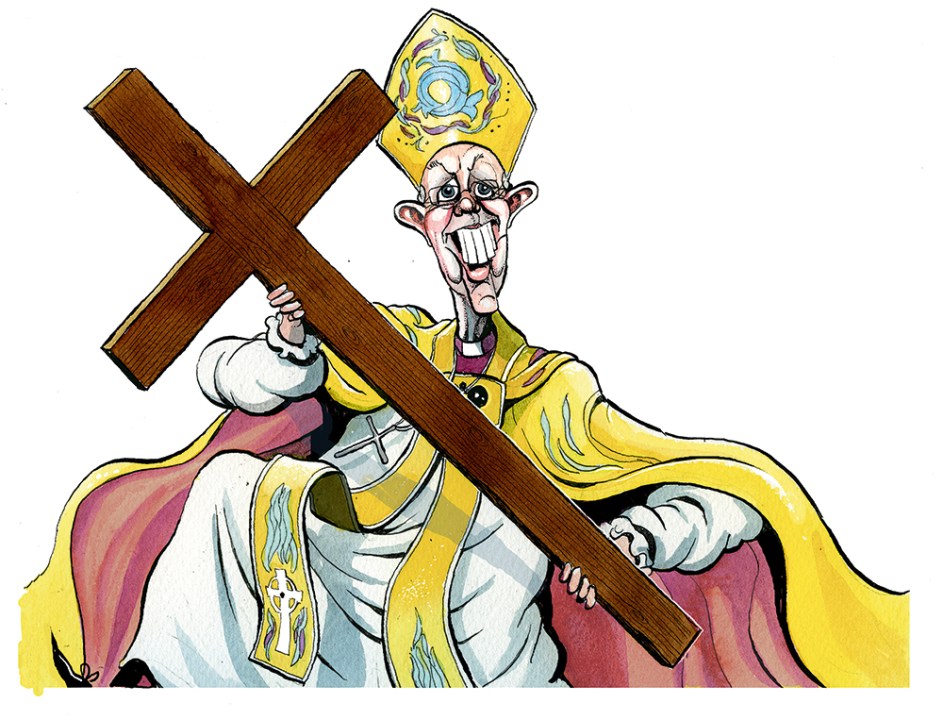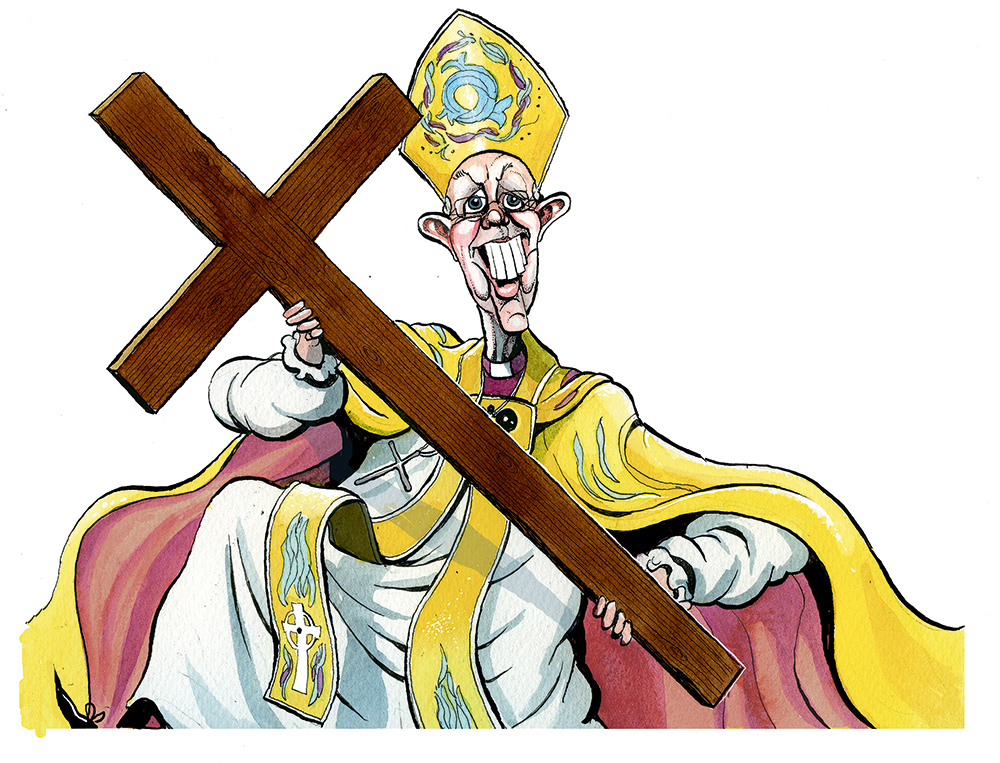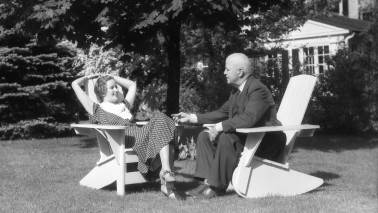Michael Ramsey, Archbishop of Canterbury in the 1960s and early 1970s, would start his day by banging his head against his desk three times while chanting: ‘I hate the Church of England, I hate the Church of England, I hate the Church of England.’ Similar thoughts must surely have passed through the mind of Justin Welby at some point during the 11 years he’s been in the job. Since he was enthroned in 2013, the Church’s many divisions have worsened, most notably over women bishops, gay marriage and, in recent years, immigration policy. Given the fractured state of the C of E – not to mention the wider Anglican Communion – Archbishop of Canterbury looks like a role you’d only take if you enjoyed the constant sensation of hitting your head against a brick wall, not a desk.
Welby’s office at Lambeth Palace bears no visible signs of head-banging. Instead, he seems grimly amused by the way Conservative politicians have turned against him. When he was appointed, the assumption among many Tories was that Welby – an Old Etonian and a former oil executive – was one of them. It hasn’t really worked out that way. Welby has criticised benefit reforms, zero-hours contracts, the tax system, a ‘broken’ economic model and the government’s immigration policy. He is one of the major critics of the Safety of Rwanda Bill, arguing in the House of Lords that the deportation policy is ‘immoral and cruel’. Conservative MPs have variously accused him of sounding as if he’s a Labour campaigner, of meddling in politics when he should be worrying about falling church attendance, and of ‘preaching from the pulpit’.
‘There’s a lot of what the government says which I entirely agree with… We must limit access to our borders’
This last comment particularly amused Welby. It came from the Tory backbencher Jonathan Gullis in 2022.









Comments
Join the debate for just £1 a month
Be part of the conversation with other Spectator readers by getting your first three months for £3.
UNLOCK ACCESS Just £1 a monthAlready a subscriber? Log in